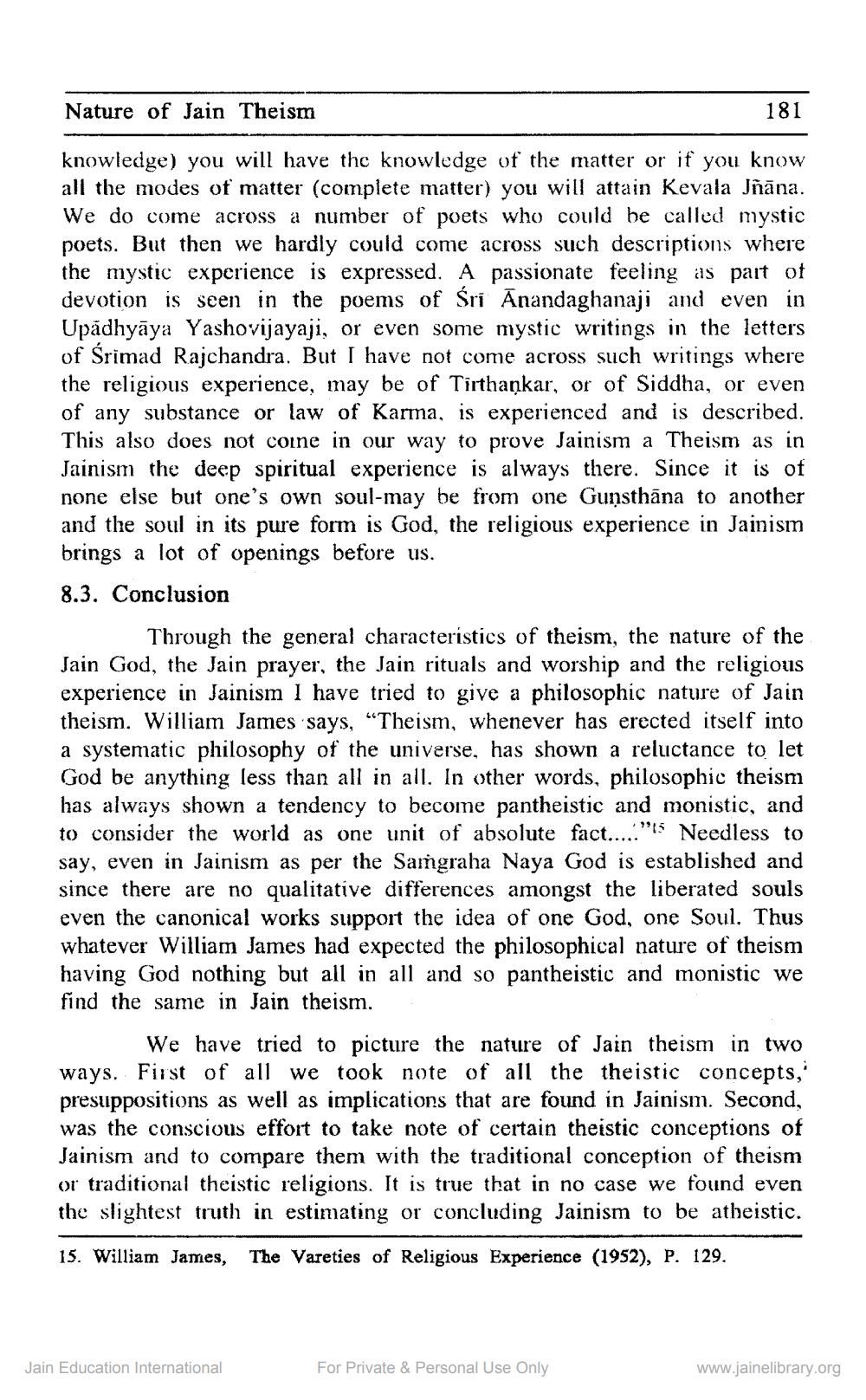________________
Nature of Jain Theism
181
knowledge) you will have the knowledge of the matter or if you know all the modes of matter (complete matter) you will attain Kevala Jñāna. We do come across a number of poets who could be called mystic poets. But then we hardly could come across such descriptions where the mystic experience is expressed. A passionate feeling as part of devotion is seen in the poems of Sri Anandaghanaji and even in
paanyaya Yasnovijayajı, or even some mystic writings in the letters of Srimad Rajchandra. But I have not come across such writings where the religious experience, may be of Tirthaņkar, or of Siddha, or even of any substance or law of Karma, is experienced and is described. This also does not coine in our way to prove Jainism a Theism as in Jainism the deep spiritual experience is always there. Since it is of none else but one's own soul-may be from one Gunsthāna to another and the soul in its pure form is God, the religious experience in Jainism brings a lot of openings before us. 8.3. Conclusion
Through the general characteristics of theism, the nature of the Jain God, the Jain prayer, the Jain rituals and worship and the religious experience in Jainism I have tried to give a philosophic nature of Jain theism. William James says, “Theism, whenever has erected itself into a systematic philosophy of the universe, has shown a reluctance to let God be anything less than all in all. In other words, philosophic theism has always shown a tendency to become pantheistic and monistic, and to consider the world as one unit of absolute fact....."15 Needless to say, even in Jainism as per the Samgraha Naya God is established and since there are no qualitative differences amongst the liberated souls even the canonical works support the idea of one God, one Soul. Thus whatever William James had expected the philosophical nature of theism having God nothing but all in all and so pantheistic and monistic we find the same in Jain theism.
We have tried to picture the nature of Jain theism in two ways. First of all we took note of all the theistic concepts, presuppositions as well as implications that are found in Jainism. Second. was the conscious effort to take note of certain theistic conceptions of Jainism and to compare them with the traditional conception of theism or traditional theistic religions. It is true that in no case we found even the slightest truth in estimating or concluding Jainism to be atheistic.
15. William James, The Vareties of Religious Experience (1952), P. 129.
Jain Education International
For Private & Personal Use Only
www.jainelibrary.org




